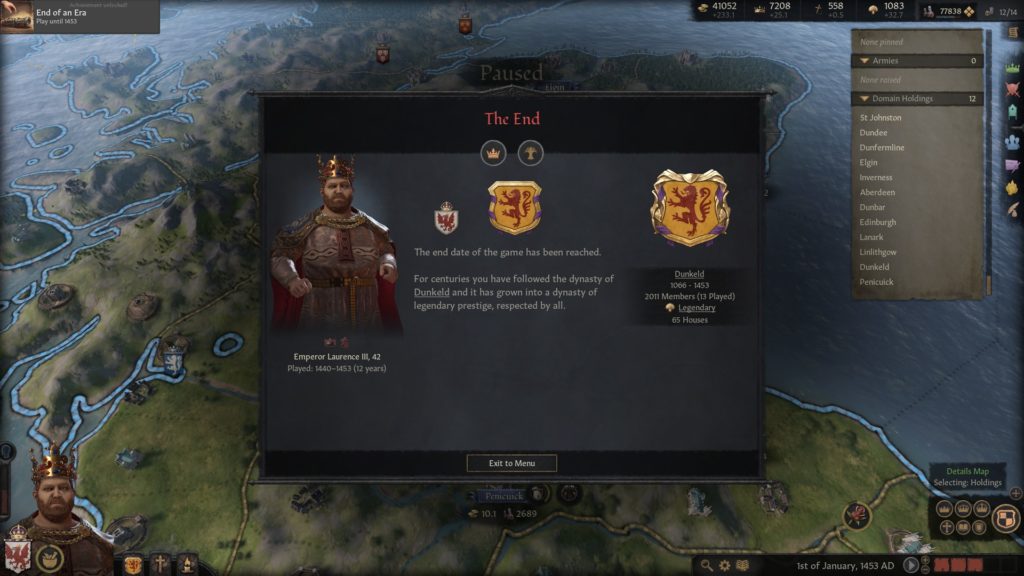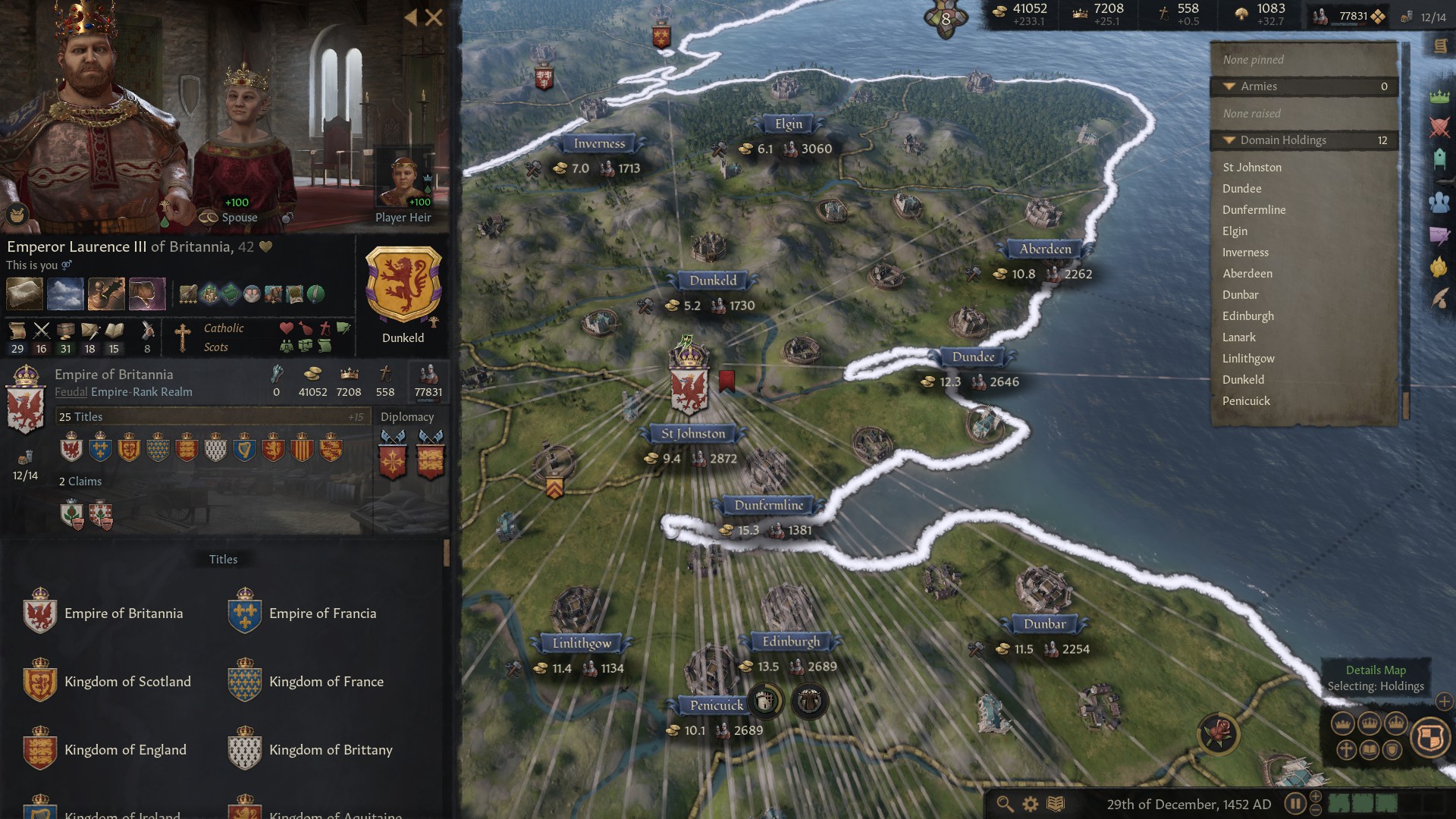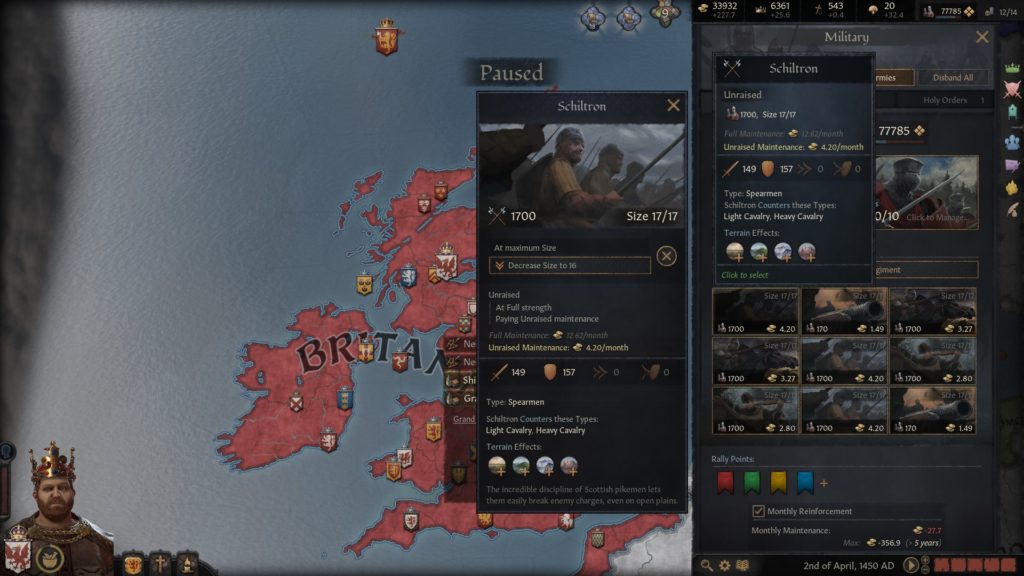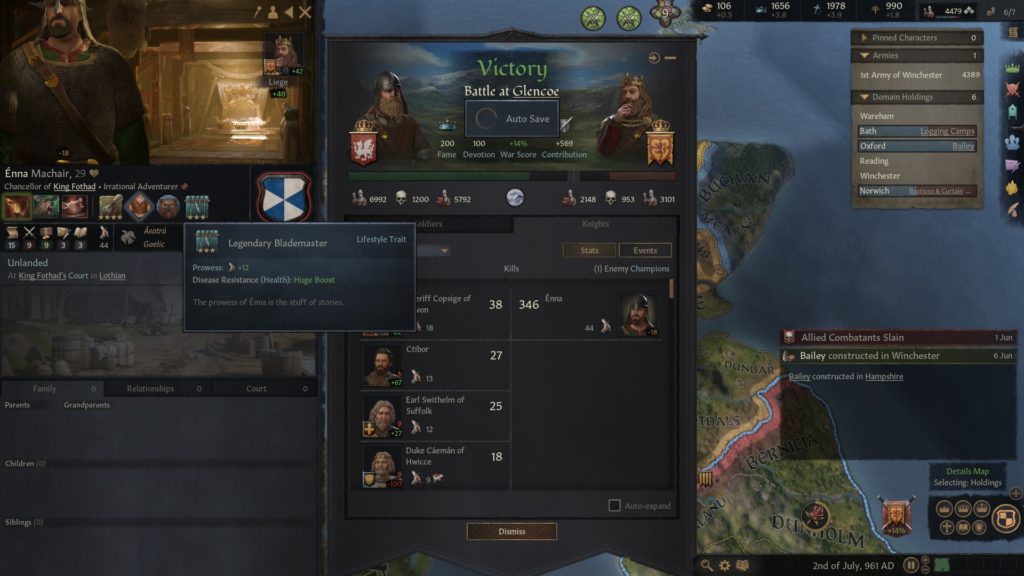Crusader Kings III is a successful evolutionary sequel to the game I called “the most significant strategy game of the last decade”. I’ve played three games — two unsuccessful in 867, the first as Alfred the Great and his descendants, the second an attempt to establish a Norse realm in India; and a final, successful run that took me from King of Scotland in 1066 to emperor of Britannia and Francia. And once I learned my way around CK3’s new, improved UI, I found a familiar experience: this is still a character-driven game about the rise and fall of dynasties, in which a loyal son can become the next generation’s rebellious brother; and a well-placed friendship can be worth thousands of swords.

The core of the game is recognisably the same as Crusader Kings II. Most of the mechanics are similar, the overall flow is the same, and lessons from CK2 still carry over. New rulers are most vulnerable when they ascend; just because you control territory on a map does not mean you command the obedience of the people who actually run the place; it is worth accepting setbacks — such as conceding to powerful vassals — if doing so strengthens your hand in the long run; and strategic marriages, opportunistic expansion, and shrewd vassal management are still the keys to a long and successful reign. The world feels similar, too: Northwest Europe is still a Viking playground in 867; large AI empires still grow until they sprawl over the map; and in the hands of a human player, Haesteinn of Nantes can still make it all the way to India1.

CK3’s new mechanics, such as stress, the lifestyle tree, and the hooks system, and its significant tweaks to existing rules such as succession, come on top of this familiar core. I think what the new mechanics do best is represent Machiavelli’s dictum that rulers need to be loved, feared, or ideally both. Playing generally benevolent monarchs, I found the most powerful button in the game was the “befriend” interaction: vassals who are also your friends will not join factions against you. But neither do vassals who are terrified of you, and so fear has its place too. Vassal management is particularly important as CK3’s succession rules make it harder to keep a gigantic demesne intact until fairly late in the game — with fewer lands of your own, you are closer to first among equals; and it becomes harder to overawe the realm’s magnates through sheer size alone.
Conversely, some of the nuance from CK2 is missing from CK3. For example, imperial government is gone; the Byzantines are back to generic feudalism; and there are no more special mechanics for the Silk Road or interacting with China. Without viceroys and the need to rein in an overly powerful council, there doesn’t seem to be as much sense of a progression from medieval to early modern government. And no Silk Road affects the gameplay in the East, where I usually played in CK2. Still, I can live with this — there is plenty to do as-is — and I assume these mechanics, or their replacements, may return in DLC.

The area of the game that feels weakest to me is warfare. Army management and individual battles are better than CK2: they are clearer, less fiddly, and easier to understand; and the game heavily rewards the player for investing in better troops or a more defensible demesne. The problem is the intermediate level, that of manoeuvres or campaigns — wars tend to degenerate into a race to see which side can siege down the other’s capital and demesne first. I think this is due to several reasons. There is no sense of geography or strategic depth: there are no zones of control, minimal logistics, and movement is easy by land or sea. War score is overwhelmingly awarded for sieges, territory ownership, and capturing key characters, with battles making up a relatively small part. And seizing the capital is particularly important, as this is where enemy leaders often reside, and capturing them is an automatic win. The result is farcical campaigns where the enemy army runs away, jumps onto a boat, sails to my capital, and tries to capture it before I can capture theirs; and the overall effect is a slightly less extreme version of Crusader Kings 1, where the fate of a kingdom could be settled by the capture of a handful of demesne provinces.

With that exception, I am quite happy with CK3. More of the same, in this case, has not been a bad thing. Whether setting up balance-of-power alliances; regaining the imperial throne from which I was deposed; or boggling at the giant, berserk Norse champion who killed 300+ of my men2, CK3 has generated both engaging strategy and memorable stories. I look forward to many more to come.